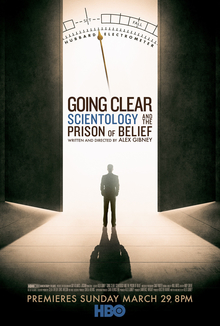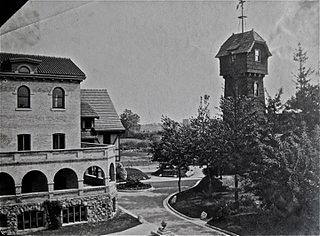
Lori Singer is an American actress and musician. The daughter of conductor Jacques Singer, she was born in Corpus Christi, Texas, and raised in Portland, Oregon, where her father served as the lead conductor of the Oregon Symphony from 1962 to 1972. Singer was a musical prodigy, making her debut as a cellist with the Oregon Symphony at thirteen, and was subsequently accepted to the Juilliard School, where she became the institution's youngest graduate.

Philip Alexander Gibney is an American documentary film director and producer. In 2010, Esquire magazine said Gibney "is becoming the most important documentarian of our time."

Deliver Us from Evil is a 2006 American documentary film that explores the life of Irish Catholic priest Oliver O'Grady, who admitted to having molested and raped approximately 25 children in Northern California from the late 1970s through the early 1990s. Written and directed by Amy J. Berg, it won the Best Documentary Award at the 2006 Los Angeles Film Festival and was nominated for the Academy Award for Best Documentary Feature, though it lost to An Inconvenient Truth. The title of the film refers to a line in the Lord's Prayer.

Todd Wider is an American plastic surgeon and Emmy Award–winning film producer based in New York, who is active in documentary filmmaking.
Mea culpa is Latin for "my fault".

Taxi to the Dark Side is a 2007 American documentary film directed by Alex Gibney, and produced by Gibney, Eva Orner, and Susannah Shipman. It won the 2007 Academy Award for Best Documentary Feature. It focuses on the December 2002 killing of an Afghan taxi driver named Dilawar, who was beaten to death by American soldiers while being held in extrajudicial detention and interrogated at a black site at Bagram air base.
Sex Crimes and the Vatican (2006) is a documentary film presented by the BBC program Panorama. It aired on 1 October 2006.

Twist of Faith is a 2004 American documentary film about a man who confronts the Catholic Church about the abuse he suffered as a teenager, directed by Kirby Dick. The film was produced for the cable network HBO and screened at the 2005 Sundance Film Festival. It received an Academy Award nomination for Best Documentary Feature.
The sexual abuse scandal in the Milwaukee Archdiocese is a series of sexual-abuse cases that occurred in the Roman Catholic Archdiocese of Milwaukee, Wisconsin, US.
The media coverage of Catholic sex abuse cases is a major aspect of the academic literature surrounding the pederastic priest scandal.
Ivor Mervyn Vigors Guest, 4th Viscount Wimborne is a British Grammy Award nominated record producer and Emmy Award nominated composer.

Sheila Nevins is an American television producer and former head of MTV Documentary Films division of MTV Entertainment Studios. Previously, Nevins was the President of HBO Documentary Films. She has produced over 1,000 documentary films for HBO and is one of the most influential people in documentary filmmaking. She has worked on productions that have been recognized with 35 News and Documentary Emmy Awards, 42 Peabody Awards, and 26 Academy Awards. Nevins has won 31 individual Primetime Emmy Awards, more than any other person. She is also a member of the board of directors for the Peabody Awards.

The 2012 BFI London Film Festival Awards were held on 20 October 2012 during the BFI London Film Festival, which ran from 10–21 October. It was hosted by Sue Perkins at the Banqueting House in London, England. There were four awards presented, along with the BFI Fellowships that went to Tim Burton and Helena Bonham Carter.

Alexandra Johnes is an American documentary film producer and former actress. As a producer, Johnes is known for films including The Square, Gonzo: The Life and Work of Dr. Hunter S. Thompson, and Doubletime. She has worked as a Producer with various directors, including Alex Gibney, Eugene Jarecki and Jehane Noujaim. In 2013, Johnes received a Primetime Emmy Award for producing Mea Maxima Culpa: Silence in the House of God. During her acting career, Johnes' film credits include starring roles as the Childlike Empress in The NeverEnding Story II: The Next Chapter, and Phoebe in Zelly and Me, alongside Isabella Rossellini and David Lynch, as well as guest appearances on Buffy the Vampire Slayer and Sabrina, the Teenage Witch.
Noble cause corruption is corruption caused by the adherence to a teleological ethical system, suggesting that people will use unethical or illegal means to attain desirable goals, a result which appears to benefit the greater good. Where traditional corruption is defined by personal gain, noble cause corruption forms when someone is convinced of their righteousness, and will do anything within their powers to achieve the desired result. An example of noble cause corruption is police misconduct "committed in the name of good ends" or neglect of due process through "a moral commitment to make the world a safer place to live." The knowing misconduct by a law enforcement officer or prosecutor with the goal of attaining what the officer believes is a "just" result.

Going Clear: Scientology and the Prison of Belief is a 2015 documentary film about Scientology. Directed by Alex Gibney and produced by HBO, it is based on Lawrence Wright's book Going Clear: Scientology, Hollywood and the Prison of Belief (2013). The film premiered at the 2015 Sundance Film Festival in Park City, Utah. It received widespread praise from critics and was nominated for seven Emmy Awards, winning three, including Best Documentary. It also received a 2015 Peabody Award and won the award for Best Documentary Screenplay from the Writers Guild of America.

St. John's School for the Deaf was a Roman Catholic school for deaf children located in St. Francis, Wisconsin. Founded in 1876, the school served children from preschool through twelfth grade before closing in 1983. St. John became most famous for being the site of possibly upwards of 200 molestations at the hands of priest and serial child molester Lawrence C. Murphy who was on staff from 1950 until 1974.
Thomas Patrick Doyle is an American inactive Catholic priest, formerly of the Dominican Order.
Lisa Rinzler is an American cinematographer who works on both feature films and documentaries. She has worked with Wim Wenders, Martin Scorsese, the Hughes Brothers and Tamra Davis.












